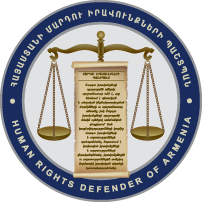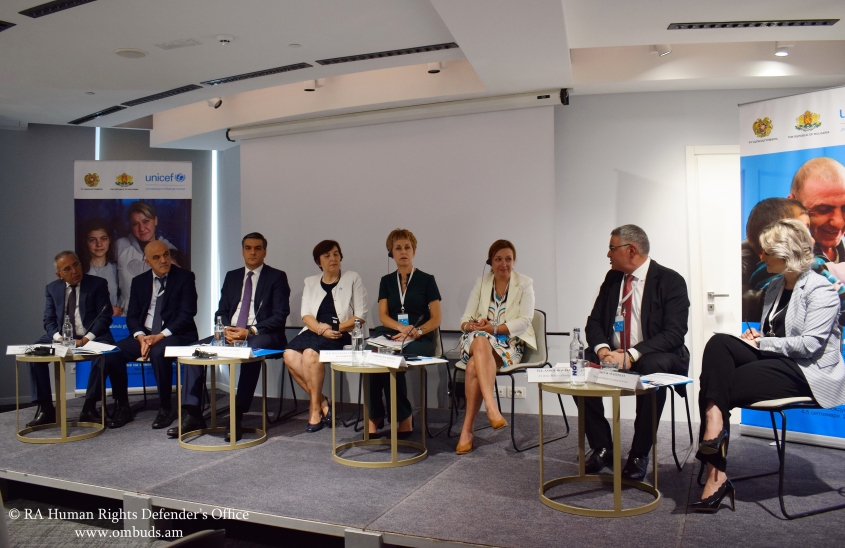Today, the Human Rights Defender Arman Tatoyan participated in an international conference titled "Keeping Families Together".
During the event, organized by the United Nations Children's Fund with the support of the Governments of Armenia and Bulgaria, Arman Tatoyan stated: "The best interest of the child should be under the primary attention in all issues concerning the protection of child’s righs, and one of the fundamental rights of the child is the right to live in a family. All of us must work in that direction, so that placing a child in an orphanage or other institution will become the last, exceptional measure.”
According to him, children are placed in special institutions because of bad social conditions, disability, or other reasons. Though the statistics show that the number of children living in orphanages has been decreasing year by year, the number of children with health issues at the specialized institutions has been increasing in parallel.
In that sense, it is necessary to work with families in a way so that the children, placed in such institutions, will be able to return to families easily. First, the state has to take measures to develop the capacities of the family and only then to close those institutions.
“We have recorded in the recently published ad hoc report, entitled “Commitments under the Convention on the Rights of the Child and its protocols: the state of fulfillment by Armenia” that Armenia has failed to fulfill or has partially fulfilled some of the obligations prescribed by the Convention and its protocols.” the Human Rights Defender said.
Arman Tatoyan also emphasized the role of the international organizations and civil society in this field.
He expressed his readiness to work with the stakeholders to ensure the protection of child’s rights, taking into account also the fact that the Defender has recently been authorized to carry out monitoring on state of implementation of the UN Convention on the Rights of Persons with Disabilities and protection of the rights of persons with disabilities.



